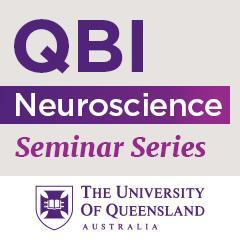Svetlina Vasileva: “Bugs and Drugs: The Gut Microbiome and Treatment Response in Schizophrenia” and María Eugenia Ferreiro: “Understanding the role of L1 retrotransposons in dopaminergic neuropathology”
1. Svetlina Vasileva (Eyles Lab)
Title: Bugs and Drugs: The Gut Microbiome and Treatment Response in Schizophrenia
Abstract: One third of people with schizophrenia don’t respond to first-line treatment with atypical antipsychotics. Half of these treatment-resistant patients also have an inadequate response to clozapine, the only medication reserved for treatment-resistant schizophrenia due to its high effectiveness in reducing psychotic symptoms. Multiple lines of evidence have suggested that the gut microbiome may play a role in physical health, drug metabolism, and psychiatric disorders, including schizophrenia. In our study we investigated whether the gut microbiome and its associated metabolites were associated with schizophrenia diagnosis, treatment-resistance, response to clozapine, and adverse health events related to antipsychotic medications.
We collected stool from 97 participants across four groups: non-psychiatric controls, people with schizophrenia taking first-line atypical antipsychotics, people with treatment resistant schizophrenia responding to clozapine, and people with treatment resistant schizophrenia not responding to clozapine. Multivariate analysis was used to investigate the association of common and rare bacterial species with schizophrenia diagnosis, treatment resistance and response to clozapine. We also assessed bacterial diversity, bacterial abundance, and commonly studied bacterial metabolites including short-chain fatty acids.
After adjusting for age, sex, BMI, stool type, diet and physical activity, multivariate analysis found significant associations between common and rare bacterial species and schizophrenia diagnosis (30% variance, SE=0.13, p=7.88E-05 and 82% variance, SE=0.15, p=1.6E-08), and both common and rare species and treatment-resistance (27% variance, SE=0.18, p=8.71E-03 and 68% variance, SE=0.25, p=3.15E-04 respectively). However, there was no evidence for association of microbiome composition with response to clozapine. Schizophrenia patients had decreased microbial richness and significantly higher beta diversity compared to non-psychiatric controls. Further analyses revealed that microbiome differences were driven by the treatment-resistant groups, who were significantly different compared to both the controls and the people with schizophrenia on traditional atypical antipsychotics. In contrast, healthy controls had a microbiome composition similar to the treatment-responsive individuals. These findings strongly suggest that either clozapine use or treatment resistance may influence microbiome composition. We suggest that prior reports of microbiome alterations in individuals with chronic schizophrenia may be due to medication or lifestyle factors and that future studies should incorporate these variables in their design and interpretation.
2. María Eugenia Ferreiro (Faulkner Lab)
Title: Understanding the role of L1 retrotransposons in dopaminergic neuropathology
Abstract: The retrotransposon long interspersed element-1 (L1) occupies nearly 20% of the human genome. Beyond their proven capacity for germline retrotransposition, primate and rodent L1 sequences are expressed and can mobilise in certain somatic cells, including neurons. However, the contributions made by L1 to neuronal physiology and neurological disease are largely unknown.
In this project, we are investigating L1 activity in dopaminergic (DA) neurons and assessing if L1 activity contributes to DA neurodegeneration. We found that, in Parkinson’s disease, the most resilient population of DA neurons express low L1 protein. To explore this observation, we established a model of human iPSC-derived DA neurons. Tracking L1 activity during stress-induced conditions, we show that increased L1 expression correlates with inflammation markers, followed by a decrease in L1 activity at later stages of neurodegeration.
About Neuroscience Seminars
Neuroscience seminars at the QBI play a major role in the advancement of neuroscience in the Asia-Pacific region. The primary goal of these seminars is to promote excellence in neuroscience through the exchange of ideas, establishing new collaborations and augmenting partnerships already in place.
Seminars in the QBI Auditorium on Level 7 are held on Wednesdays at 12-1pm, which are sometimes simulcast on Zoom (with approval from the speaker). We also occassionally hold seminars from international speakers via Zoom. The days and times of these seminars will vary depending on the time zone of the speaker. Please see each seminar listed below for details.




